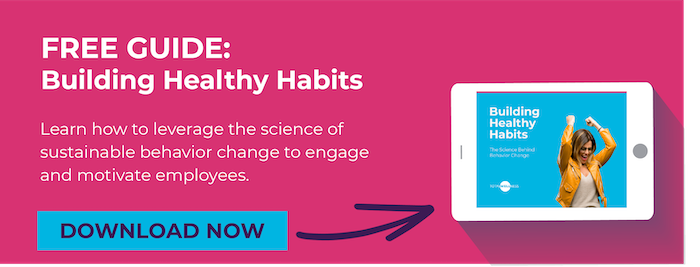Everyone has a bad habit. Some might seem harmless or quirky, but others can really get in the way of your health and wellbeing. Here are a few common bad habits that you should stop immediately to live a happier, healthier life:
Going to bed late. We get it, not everyone is a morning person. But whether you work full-time or stay home with your kids, chances are, you have to be a functioning human being before 9 a.m. Going to bed late makes getting 7 to 8 hours of quality sleep next to impossible. If you’re used to being a night owl, start gradually going to bed earlier. Start by turning off the TV or putting down your book 30 minutes earlier than usual. The more sleep you get, the healthier, happier, and more productive you’ll be!
Over-snacking. A healthy snack when you’re hungry in-between meals is great fuel for your body. However, over-snacking (or snacking when you’re not hungry) can become a big problem. Eating too many snacks in-between meals can lead to weight gain and fatigue – especially if your snacks aren’t nutritious. Be sure to pre-portion out snacks (like a handful of almonds) to refrain from overeating. Ask yourself if you’re actually hungry – and not just bored – before you start snacking!
Complaining. It’s easy to complain, and it’s difficult to find the good in an unfavorable predicament. However, complaining won’t help the situation or your mood. Try to keep yourself in a positive mindset and find the silver lining in every negative circumstance you face. You’ll be happier, less stressed, and more enjoyable to be around!
Skipping breakfast. When you’re in a rush to get out the door in the morning, eating breakfast might be your last priority. However, eating a healthy breakfast benefits your body in many ways – and a cup of coffee simply doesn’t cut it! Making time for a nutritious breakfast every morning will help keep your weight in check, prevent you from over-eating at lunch, improve your metabolism, and keep you energized and productive throughout the day.
Hitting snooze. Hitting the snooze button is one of the worst ways to start your day. The sleep you get while “snoozing” isn’t quality sleep at all – it really makes you more tired! Snoozing can also throw off your body’s internal clock, making it difficult to get up around the same time every day. Even worse, it can make you late and cause you to stress trying to get to work on time. Try placing your alarm far away from your bed and set a higher volume. You’ll be forced to get up instead of snoozing!
Ignoring your financial health. Money troubles have a lot of negative side effects on your physical and mental health. Financial stress can contribute to high blood pressure, feelings of depression, insomnia, headaches, digestive problems, chronic pain, ulcers, and substance abuse. A study by Payoff found that 1 in 4 Americans have PTSD-like symptoms from financial stress. If you’re having trouble managing finances or overspending, don’t feel ashamed to seek financial advice to help you budget and save money.
Ignoring stress. We often ignore stress, or pretend that nothing gets to us. But stress can be horrible for your body. Plenty of research has shown that stress contributes to high blood pressure, heart problems, weight gain or loss, sleep problems, irritability, and troubles concentrating at work. There is a lot you can do to manage stress – meditation, working out, yoga, or going to a spa. Always make time to de-stress.
Saying “yes” to everything. There’s no sense in being a “yes man.” Realistically, you can’t attend every meeting, volunteer for every extra shift, and take on every project – so, stop expecting yourself to! Saying “yes” to every request might make you feel helpful or valuable at the moment, but taking on too much will only lead to stress and frustration. Learn that it’s okay to say “no” if you have too much going on or if you simply just need some relaxing “me-time”.
Checking social media constantly. There’s nothing wrong with keeping up with friends via social networking. However, when you start to get addicted to social media and find yourself refreshing your newsfeed every 15 minutes, there might be some serious consequences. This article does a great job showing the link between social media and higher levels of loneliness, envy, anxiety, depression, narcissism, and decreased social skills.
Despite what you might think, bad habits aren’t impossible to break. If you are guilty of one or more of these common bad habits, try working on breaking one at a time and replacing it with a healthy habit. It’s never too late to reverse a bad habit!
What bad habits have you kicked for a happier, healthier life?
Image created by Chevanon - Freepik.com



